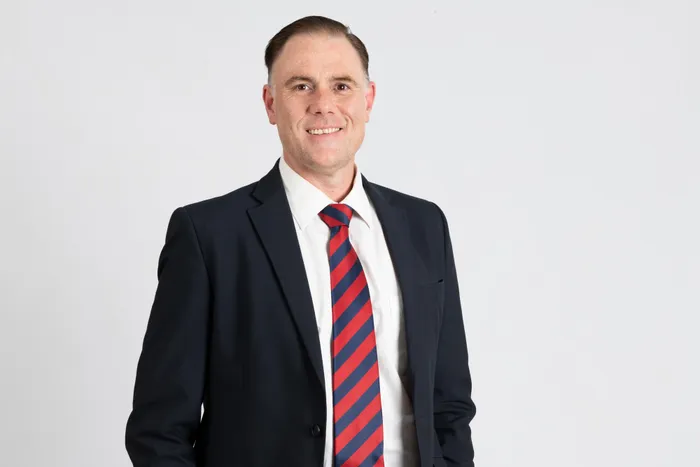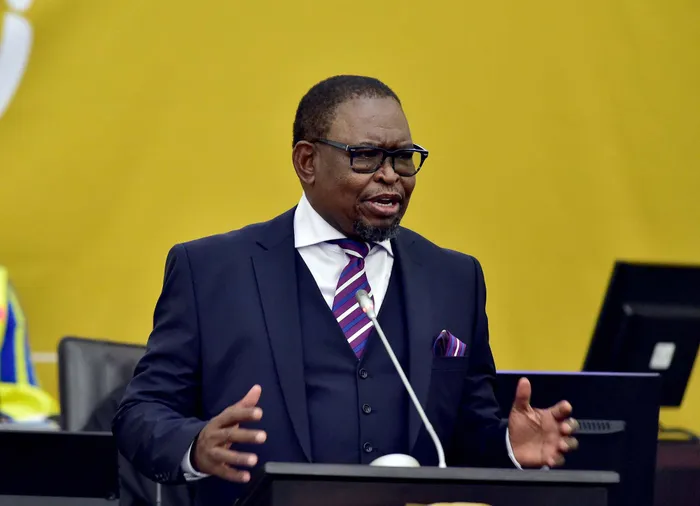
KPMG South Africa’s Lead Economist, Frank Blackmore, said Finance Minister Enoch Godongwana’s Medium-Term Budget Policy Statement struck the right chords, focusing on growth, reform, and private sector participation to boost economic momentum.
Image: Supplied.
KPMG South Africa’s Lead Economist, Frank Blackmore, said that Finance Minister Enoch Godongwana’s Medium-Term Budget Policy Statement addressed many of the expectations and challenges that had been raised prior to its release.
“In my view, it addressed all the points that had come up before the budget. The focus was primarily on generating faster economic growth and thereby reducing unemployment and poverty,” said Blackmore.
“One of the main ways to do that was through structural reforms, both internal to government as well as external, as we have seen in the electricity and logistics sectors.”
Blackmore noted that the statement was structured around four key pillars: macro stability, structural reforms, increasing state capacity, and supporting growth-enhancing infrastructure.
While much of the content was familiar, Blackmore highlighted one significant development, the emphasis on macroeconomic stability and Treasury’s support for the South African Reserve Bank’s proposal to lower the inflation target to 3%, with a 1% band.
“This will be positive over the medium to longer term for all South Africans in terms of preserving incomes and wealth, and in lowering the cost of borrowing for households and businesses,” he said.

Finance Minister Enoch Godongwana delivered his Medium-Term Budget Policy Statement (MTBPS) on Wednesday.
Image: Phando Jikelo / Independent Newspapers.
According to Blackmore, the fiscal outlook appeared on track, with revenues slightly ahead of what had been budgeted earlier in the year by 19.3%.
He noted that the largest allocations would go to education and health, while one-off expenditures such as next year’s elections, the reconstruction of Parliament, and increased funding for the South African Revenue Service (SARS) would also receive attention.
“The minister also highlighted SARS’s intensified efforts to tackle the illicit economy, which has reportedly cost the country around R40 billion in lost revenue from illegal trade in cigarettes, alcohol, and fuel,” Blackmore added.
A major theme of the statement was infrastructure development. Blackmore said he was encouraged by the advancement of Operation Vulindlela and progress in the electricity and logistics sectors.
“This was also linked to funding with the introduction of the Basic Facility for Infrastructure, which will be funded by infrastructure bonds,” he explained.
“They are looking to raise R15 billion in this regard, largely from private sector money. This fund has been on the table for some time, and along with the public-private partnerships we are seeing in logistics, particularly in rail and ports, it is a positive step forward.”
Blackmore also highlighted the minister’s emphasis on targeted and responsible savings. “The aim is to reduce waste and eliminate duplication within government operations,” he said.
“The minister noted savings of about R7 billion, half of which came from curbing double-dipping in the social grants system.”
He added that the structural reforms in government, particularly around procurement, were also promising.
“The Madlanga Commission and parliamentary committee revealed that collected revenue often fails to reach its intended destination due to a flawed paper-based procurement system. The minister’s planned improvements to enhance transparency and accountability are a welcome development,” said Blackmore.
He pointed out that the government was also addressing internal inefficiencies by investigating 9,000 high-risk ghost worker cases, which would strengthen the credibility and efficiency of public sector operations.
“In the end, this budget focuses on growth,” Blackmore concluded. “It focuses on achieving that growth through increasing the capacity of government as well as ongoing investment in infrastructure. There is also a big emphasis on including the private sector more in the economy, and that will be key. What we need to see now is how this is implemented over the coming years, hopefully sooner rather than later.”
BUSINESS REPORT